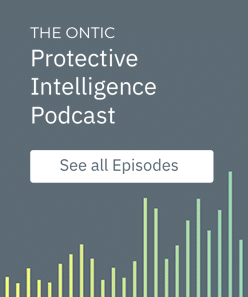Podcasts
How Security Teams Enable Decision-Making in Times of Crisis
Major General Richard Lake works as an independent consultant focusing on global and corporate security issues. Prior to his retirement from active duty in 2013, Lake served for over 36 years in the U.S. Marine Corps as an intelligence, foreign area, and infantry officer. He also served for four years with the CIA as one of the deputy directors of Community Human Intelligence for the National Clandestine Service (now Directorate of Operations). After his retirement, he entered the private sector working as the Chief Security Officer of Booz Allen Hamilton and as the Director of Global Security for the Bill & Melinda Gates Foundation.
Key topics of Lake’s discussion with host Chuck Randolph include:
- Lessons in risk management Lake has learned that translate between his government and private sector experience.
- The importance of knowing your business and where security can add value to better support strategy and decision-making.
- Decision-making in times of crisis and the importance of knowing who has the authority to make certain decisions before an event occurs.
Key takeaways:
06:57: Chuck Randolph: How did you translate or how would you recommend people translating the ability to say ‘hey, here’s some tenets that we have from say being in the military into the private with corporate world.’
07:45: Dick Lake: I would push back just a little on you Chuck when you said you kind of have it handed to you in the military. That’s not always the case. What I had to do in the military is similar to what I had to do in the corporate world which is sell my product. Convince people that I had a product that was worth using and why it was in their interest and to their benefit to use that product.
12:45: Dick Lake: Part of it is what’s my value proposition to the organization and one of the key ways you establish your value is you have an in-depth understanding of the business of the business and look for it look to identify ways that you can contribute.
21:50: Dick Lake: It’s critical to understand what the organization’s crisis management, crisis response, and business continuity policies and procedures are. Most organizations will have somebody that has been identified that will have that role. The second thing is understanding who has the decision authority for certain things and who can make a decision to close an office.
That’s something you need to decide before there’s a crisis because a crisis is business that is not normal. So as as a chief security officer, I may not have that authority to close the office but I might be able to make a recommendation to the chief operating officer. People need to understand that — not just the chief operating officer and the chief security officer, but the chief financial officer, the CEO — everyone needs to understand it.


